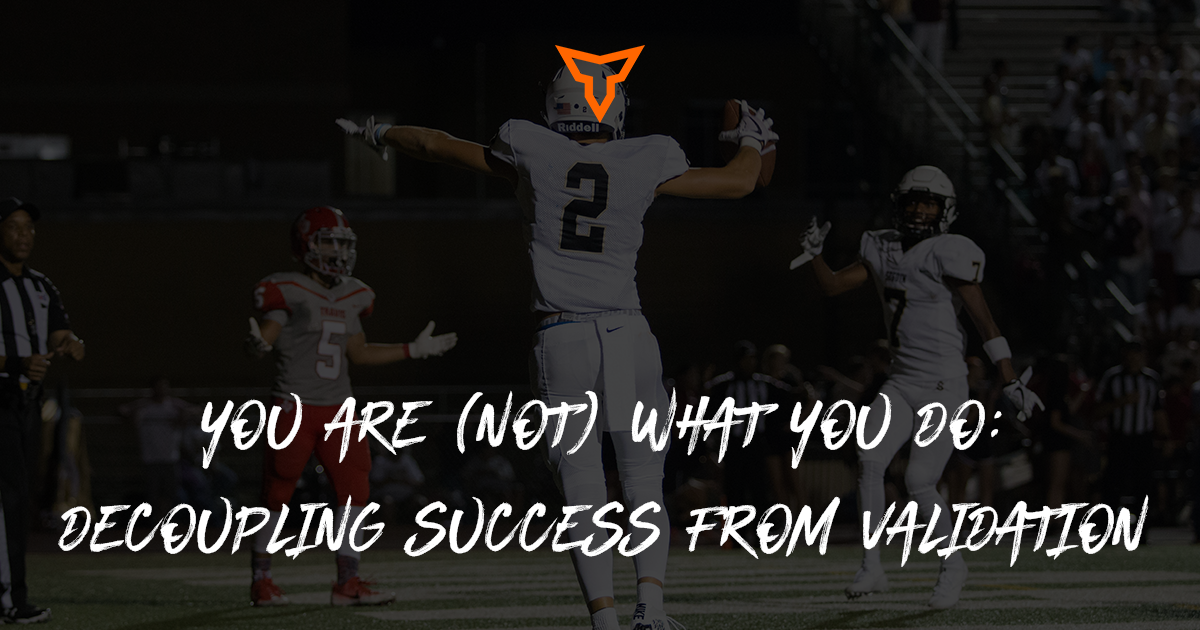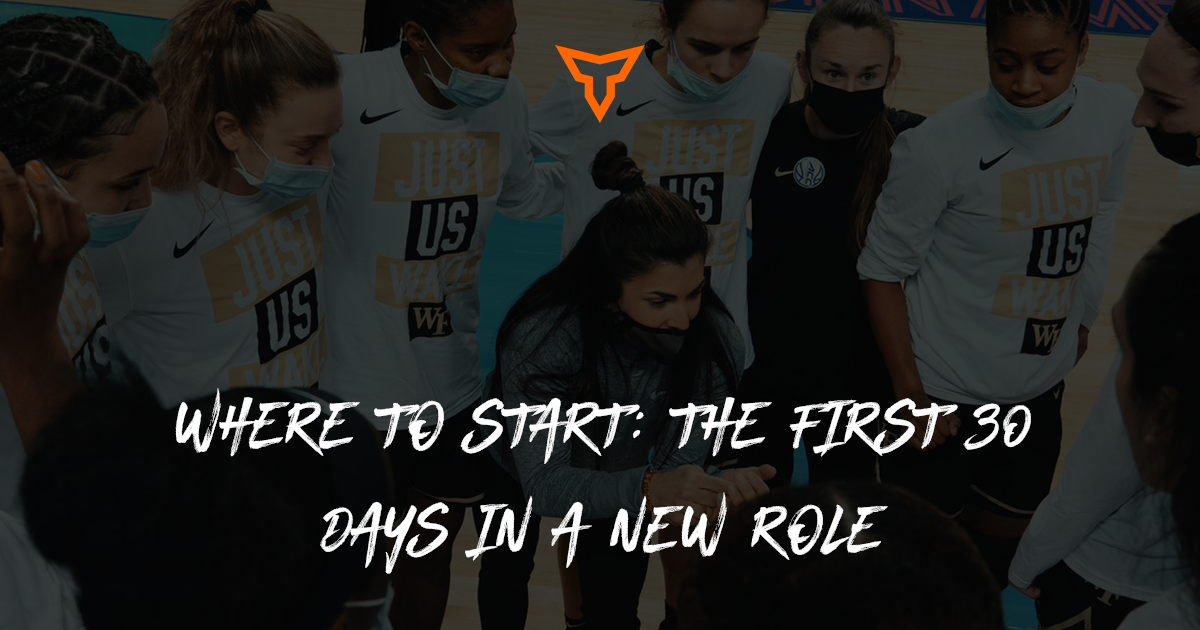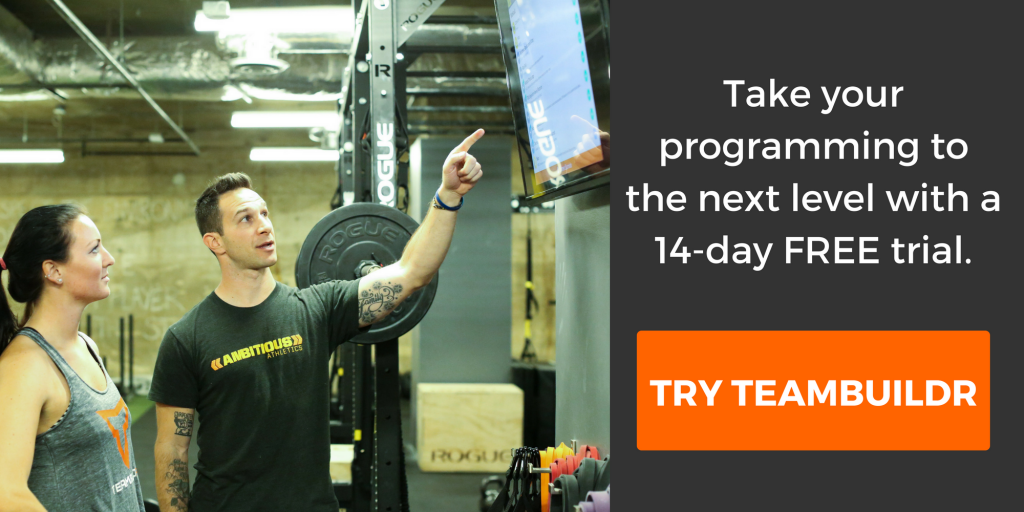What Strength Coaches Should Do Behind the Scenes
I would describe the career path as a strength and conditioning coach as special.
This career leads us to an amazing calling of impacting the lives of hundreds - if not thousands - of individuals over the course of our careers. If you are currently employed, I would like to ask you to take a moment to count your blessings regardless of the downfalls and shortcomings you may be facing. As many of us have experienced already, no one job will last forever. We will move onto other opportunities at some point during the journey. Sometimes it may be on our terms but at many times it will come at the hands of others. Either way, we will roll with the punches and land on our feet to continue to do what we do best: coach athletes!
I say all this in order to bring some perspective to the profession of being a strength coach. It is our job to set the standards high, challenge athletes to be at their best, and develop lasting relationships beyond playing careers. A lot of this comes down to what strength coaches should do behind the scenes.
The Holy Sh*t Principle
Before you step foot into the next facility to begin the next chapter of your career, I would encourage you to “do some homework.” I like to call this the Holy Sh*t Principle (a.k.a The Don James Principle).
This principle requires you to study the organization and the people within the walls of the organization that make it “come to life.” This means that you will need to get beneath the surface of just knowing first and last names. For instance, when was the organization established and what they are known for academically?
Read the University’s and Athletic Department’s mission, vision and core principles. Know where the administrators have been before, what colleges they attended, degrees they have completed and what boards they serve on. Research the head coach’s philosophies, assistant coaches’ backgrounds and the support staff who keep things glued together behind the scenes. Find out the names of the facility maintenance crew and equipment staff and offer to buy them breakfast or lunch.
Doing this groundwork is not required in the job description, but it's something strength coaches should do behind the scenes. These are the pursuits of someone that will integrate themselves into the cultural fabric of their organization. Once you are embedded, you are bound to being a leader of the organization’s culture.
Next, studying the rosters of all the athletes you will be directly involved with is certain to bring credibility and rapport to your relationship with them as their strength coach. But also consider getting to know the athletes you will be indirectly involved with as well. An easy way to familiarize yourself with this information is to create icons of the roster web pages to your phone or tablet; visit the webpages to study the athletes often. Try to hop on social media outlets and go back a full calendar year to see what you can discover. Learn the fight song by saving the words as your screensaver and sing it on your commute to and from work.
Done all that? How about learning as many of the athlete’s parent’s names, majors, and any other tidbits that will help us earn their trust from the moment we are introduced. Our first interaction as their coach shouldn’t include asking, “what’s your name again?” On the contrary, imagine the surprise on an athlete’s face when you ask about their parent by name.
When we accept a new opportunity, we should go all in. Try to view it as your contribution to the progression of the strength and conditioning profession. A progression that will make organizations understand the importance of who we are and why we do what we do. The more we know about the people who are already in place, the greater the opportunity we have to make those positive impacts in the lives of others. It’s beyond the sets, reps, energy system development and athlete monitoring. We all have those capabilities and are continuing to develop those qualities every year with our teams.
What is even more substantial is getting the most out of each athlete on a consistent basis. The only way we can do this is by challenging and getting them through their most difficult times. However, making this type of an impact is a privilege you need to earn first. In order to earn this privilege, we have to truly know the athletes and be able to consider them family, and vice versa. Winning our athletes' trust up front isn’t impossible, but it takes extreme and consistent effort on our part to create that bond. If we do this the right way, athletes will have shown up to the weight room clear eyed, mind blown with the thought of, “Holy sh*t, this is our coach!”
Subscribe to our blog
Subscribe to receive the latest blog posts to your inbox every week.
Related posts

You Are (Not) What You Do: Decoupling Success from Validation

JJ Watt Recovers Own Strip Sack Then Catches TD Pass

